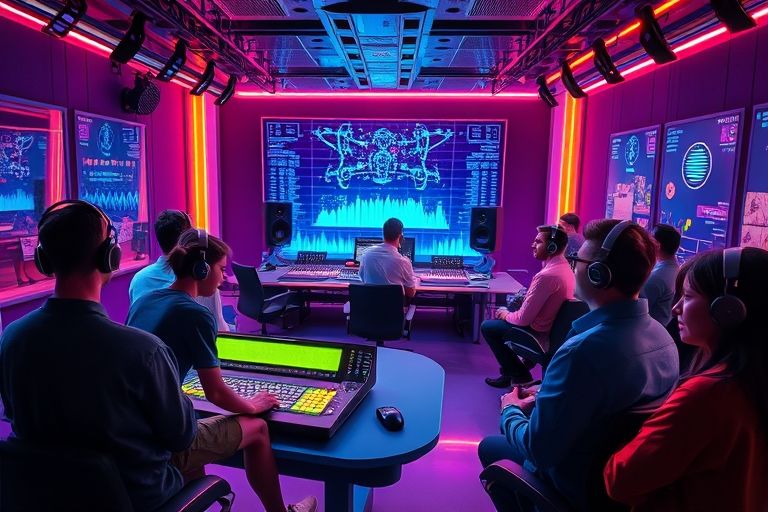
The music industry has undergone several transformations over the years, and the introduction of artificial intelligence (AI) has taken it to a whole new level. From music production to consumption, AI has made significant contributions to the industry, leading to improved quality, efficiency, and innovation.
AI has revolutionized music production by enhancing the creative process and simplifying complex tasks. For instance, AI algorithms can analyze a song's structure, tempo, melody, and harmonies to generate new and innovative ideas. This technology has enabled producers to identify patterns, predict trends, and create unique soundscapes that resonate with their audience.
One example of AI in music production is Amper Music, an AI-powered platform that allows users to create custom music tracks in minutes. Amper Music uses machine learning algorithms to analyze data and generate music that matches the user's preferences. This technology has eliminated the need for expensive studio sessions and has democratized music production.
AI has also transformed the way we consume music. Music streaming platforms such as Spotify, Pandora, and Apple Music use AI algorithms to personalize the user experience. These platforms analyze user data such as listening history, search queries, and playlist preferences to recommend personalized music content.
Additionally, AI has enabled music discovery by introducing users to new and emerging artists. For example, the AI-powered platform, SoundCloud, uses algorithms to analyze user data and recommend new music based on the user's listening history.
AI has already made significant contributions to the music industry, and its impact will only continue to grow. According to Statista, the global AI market is expected to reach $267 billion by 2027, with the music industry being one of the major beneficiaries.
As AI technology advances, we can expect to see more innovative applications in music production and consumption. For instance, AI-powered virtual assistants could help artists with songwriting, production, and marketing. Additionally, AI could be used to enhance live performances by creating immersive experiences for the audience.
The rise of AI in the music industry has transformed the way we produce and consume music. From personalized recommendations to innovative music production, AI has improved efficiency, creativity, and quality in the industry. As AI technology continues to evolve, we can expect to see more innovative applications that will shape the future of music.